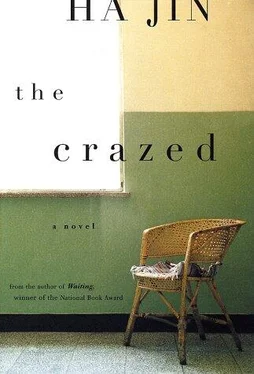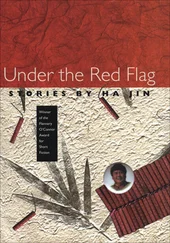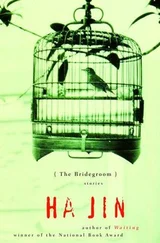“Sorry, I couldn’t help it,” I mumbled.
“If you continue to be a smoker, how can we live together in the future? Besides, this is playing ducks and drakes with money. .”
I felt ashamed and remained tongue-tied, just letting her fume at me. After she was done, I promised her that I would quit smoking this time and wouldn’t use her father’s illness as an excuse again. I had planned to take her to bed, but now intimacy was out of the question because her temper hadn’t subsided yet. Also, she was utterly exhausted, unable to keep her eyes open. So I urged her to go to bed. She washed her face and bathed her feet, then padded into the bedroom and closed the door. I slept on the sofa in their living room, not daring to disturb her during the night.
The next morning she and I went to the hospital again. Banping was happy when we relieved him. After combing Mr. Yang’s hair and brushing his teeth, we both sat down, she seated on my lap as there wasn’t another chair in the room. The night’s sleep had refreshed her thoroughly; her features were vivacious again, mischievously mocking at times. Her checkered dress was rather homely, washed out, hanging on her loosely, so I didn’t have to worry about rumpling it. She was visibly excited, her eyes radiating a soft light and her full lips slightly curled. I couldn’t help nuzzling her hair to inhale its hazelnutlike scent. Now and again I’d kiss her neck or gently twist her small silken ear despite fearing that her father might notice what I was doing.
We chatted about the students’ demonstrations in Beijing while Mr. Yang listened quietly. Gradually our topic shifted to preparations for the exams. For one of the six slots in a graduate program in pediatrics, Meimei would have to compete with over a hundred applicants.
“We’ve formed a group to study political economy and the Party’s history,” she told me.
“Does it help?”
“Of course, a lot. We test each other with the questions that may appear in the exam. This method can make us remember the answers better, and also gives us some fun when we’re working on the questions together. Besides memorizing all the answers, there’s no other way to prepare for the political exam.” She smiled and her chin jutted.
“That’s true,” I agreed. “But what a waste of time. Each year some of the answers differ from the previous year, especially in the history of the Chinese Communist Party. All depends on who is in power now — the winners always revise the history to make the losers look like a bunch of criminals.”
“Don’t be so cynical,” she said. “We’ve no choice but to give the expected answers.”
“I can’t spend too much time on politics. The other subjects make more sense to me.”
“You ought to take the political exam seriously. Last year a student in my school scored the highest in all subjects except politics. He flunked it miserably, only got forty-six points. That gave him a terrible time, although he was really smart, fluent in both English and Russian.”
“Did he get into a graduate program eventually?”
“Yes, but only after a lot of trouble. The Shanghai Military Medical University was determined to have him and sent a team of three people to our school. They held meetings and asked the other students about his political attitude and activities. Everybody said something in his favor, so he was admitted as a special case two months later, approved by the Ministry of Education.”
“Lucky for him.”
“Yes, only because he was absolutely phenomenal. We may never have that kind of luck, so work hard on the Party’s history and dialectical materialism.” Somehow she left out political economy and current events, each of which would constitute a quarter of the exam as well.
“I will, don’t worry,” I said. “To tell the truth, I fear Japanese most. In the political exam, even if you don’t have a definite answer to a question, you can bring your imagination into play, especially when writing the short essays — just make up some sentences. But in a foreign language test, every answer is fixed and there’s no room to waffle.”
“You know English better than most applicants, so even if you don’t do well in the Japanese exam, you’ll still have an edge over others. Don’t lose heart.”
Suddenly Mr. Yang chimed in, “She’s right. Also bear in mind that you have a strong recommendation from me. The professors at Beijing University will take my words seriously. So don’t waste your time looking after me here. Concentrate on your study. I want to see you two get married and settle down in Beijing. That will make me happy.”
I was amazed that he spoke so rationally. Meimei stuck out her tongue, which was red, thin, and narrow. Her face grew naughty, rather boyish. She was so charming that I couldn’t help touching her forearm and stroking her legs, though we dared not neck too much in her father’s presence. She had a little leg hair, which was brownish and would turn lucent in sunlight. If only we could have stayed outside in the open air.
She had to catch the 12:30 train back to Beijing. She wouldn’t let me buy her lunch, saying she could eat in the dining car, which would be a good way to pass the time on the train. Before leaving, she asked me to forgive her for blowing her top the night before. I was not really bothered by that, I told her. I promised to do a better job in taking care of her father — I would sponge him, brush his teeth, and rub his sore with cotton balls soaked with alcohol or peroxide. I would do those every day. Also, I’d bathe his feet and clip his nails regularly, and make sure he didn’t get bedsores.
I couldn’t go to the train station to see her off, so she left alone.
In the spring of 1987, three months before I met Meimei, a Hong Kong trade company had come to Shanning University to recruit employees. They wanted only graduate students who knew both English and Chinese well, and they gave the applicants written tests in both languages. Dozens of people applied for the jobs, which paid at least ten times more than a regular college graduate could earn in mainland China. I took the tests and somehow came out second, probably because my English was better than the others’. So the company was eager to hire me. The head of the recruiting group talked to me twice, promising me subsidies for housing and even for my future children’s education; he also mentioned I’d receive a generous bonus at the end of every year. Most people here coveted this opportunity. After hearing of my test results, Banping congratulated me, saying he wished he had studied English devotedly. He hadn’t even attempted the tests. Yet I was unsure whether I should go to Hong Kong. I asked Weiya, who couldn’t say for certain either; she too thought this was a rare opportunity, though she believed I was not cut out to be a businessman. Numerous faculty members said to me in private that I shouldn’t hesitate to grab the offer. One of them whispered to me, “Don’t just have a one-track mind, Jian. Whatever we do, teaching or writing, in essence we all struggle to make a living. That job pays so well that you’ll become a millionaire eventually.”
Yet the more I heard from others, the more uncertain I became. I dared not seek Mr. Yang’s advice, fearing he might scold me. I knew he disliked the idea of my going into business.
One late afternoon, as I was leaving the classroom building, my teacher caught sight of me and called to me. I froze in my tracks at the side door.
Coming up to me, he said, “Going home?”
“Yes,” I answered, then together we resumed walking. Silently we strolled toward the street outside the campus. On the dusty playing field some undergraduates were chasing a soccer ball and two stout women were practicing the shot put. A group of students in sweat suits were drawing lines for a sports meet, dribbling liquid whitewash from kettles to the ground on the outskirts of the field.
Читать дальше

![Lao Zi - Dao De Jing [Tao Te Ching] (english)](/books/3890/lao-zi-dao-de-jing-tao-te-ching-english-thumb.webp)
![Lao Zi - Dao De Jing [Tao Te Ching] (chinese)](/books/3891/lao-zi-dao-de-jing-tao-te-ching-chinese-thumb.webp)
![Lao Zi - Dao De Jing [Tao Te Ching] (espanol)](/books/3892/lao-zi-dao-de-jing-tao-te-ching-espanol-thumb.webp)







